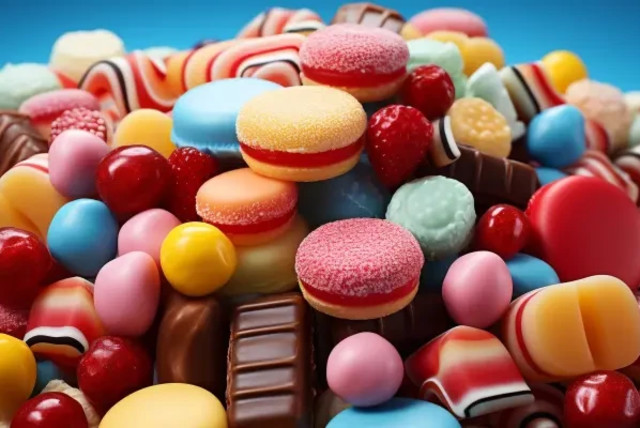Is eating foods with food dyes bad for you? Here's what you should know

Are food colorings really necessary in children's sweets? Dr. Maya Roseman explains the side effects of food coloring on our health and on that of our children.
While children are considered to be the biggest consumers of food dyes (which are found in abundance in sweets, ice creams, and dairy products), it turns out that they are also the main victims of these dyes, because the most harmful side effects of food dyes manifest themselves precisely in childhood.
Small amounts of the food colorings are indeed approved for consumption by the Health Ministry, but it is still better to consume as little of them as possible, due to the health damage that they may cause, even in small amounts. All candies, toffee, and lollipops have a huge amount of food coloring, especially the most harmful dye for children – Tartrazine.
Scientific studies have shown that excessive consumption of this color causes hyperactive behavior, and when you give up foods with this color and transfer the children to a diet without food coloring – they relax, and their restless behavior disappears.
What do you do when the children insist on eating something with food coloring?
It should be noted that sometimes only colorful packaging is enough. There are dairy products whose packaging is a strong color, and the cheese or yogurt inside is a pale color because they have natural food coloring, and it doesn't really matter to children.
This is also true for candies or popsicles with colorful wrappers. You should read the food packaging and aim for products that contain only natural colors.
Jerusalem Post Store
`; document.getElementById("linkPremium").innerHTML = cont; var divWithLink = document.getElementById("premium-link"); if (divWithLink !== null && divWithLink !== 'undefined') { divWithLink.style.border = "solid 1px #cb0f3e"; divWithLink.style.textAlign = "center"; divWithLink.style.marginBottom = "15px"; divWithLink.style.marginTop = "15px"; divWithLink.style.width = "100%"; divWithLink.style.backgroundColor = "#122952"; divWithLink.style.color = "#ffffff"; divWithLink.style.lineHeight = "1.5"; } } (function (v, i) { });

